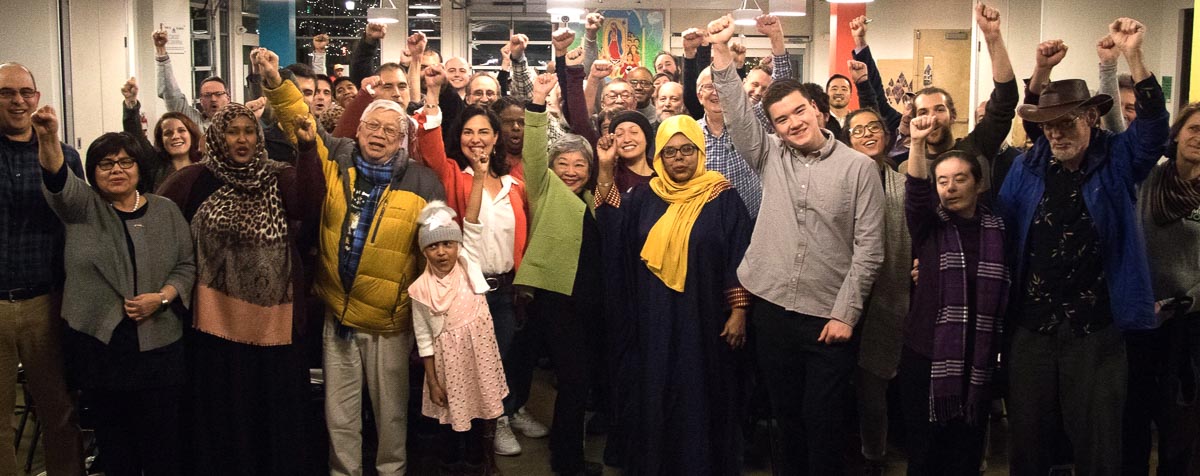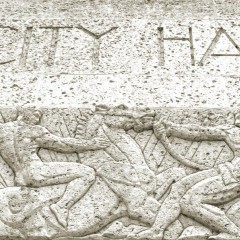This is the second in a two-part look at Hispanic representation in Houston municipal politics. Part 1 addressed the creation of a new district in 2011 to boost Hispanic membership on city council.
Seattle, with 737,000 residents, is 67% white, 15% Asian, 7% Black and 6% Hispanic, according to the latest U.S Census. And yet, since 2015, Seattle has elected four Hispanic councilwomen and appointed one interim Hispanic councilman. Three of out of the nine positions have been designated to districts, while the other two have been at-large. Its first Hispanic council member, Lorena González, was elected in 2015 and recently mounted a competitive campaign to be its first Hispanic mayor, boasting endorsements from Julian Castro and Bernie Sanders.
Boise, Idaho, a city of over 235,000 people, is 90% White, 2% Black, 3% Asian and 3% Hispanic. In 2017, Boise elected Lisa E. Sánchez, the first Hispanic to campaign and serve in at-large public office. Moreover, this week, she was able to retain a position on council after the creation of single-member districts for the first time.
By comparison, Houston has 2.3 million residents who are 24% White, 45% Hispanic, 23% Black, and 7% Asian. Yet, the city currently has the same number of Hispanics serving on city council as Boise and has not had an at-large Hispanic representative in decades.
The experience of candidates in those cities, and the nature of the communities that surround them, offer some insights for Houston, which has struggled to elect significant numbers of Hispanic candidates to city council.
Lessons from Idaho
When she first decided to run for office, Sánchez did not have the public support of a city and state Hispanic political coalition, which are seen as the advocates for cultural representation within communities.
She said it was her mother’s work at a community civil rights organization and her family’s struggles to make ends meet that inspired her to run for public office. However, when Sánchez ran, she felt like an outcast from the very community that she identified with, as she was not a political insider.
“I did not have the flexibility to sacrifice my employment to be politically engaged with my affluent peers. I know that my inability to engage with my affluent peers prior to running for office created additional hardships towards garnering support,” Sánchez said.
In 2016, Sánchez found employment with a flexible work schedule that allowed her to pursue a political position, which she credits to allowing her to build a winning campaign.
But the fact remains, building inroads with political groups is a significant hurdle when you are a working-class immigrant. Hispanic candidates who are first-generation Americans have had to fight to overcome obstacles associated with poverty and language barriers, and yet the issue of belonging remains.
“I have met many Hispanics who have steered away from running for office because they feel like an outcast from the well-established Hispanic groups,” Sánchez said.
Despite this hardship, she built a campaign by cultivating support elsewhere: White women.
“During my election, I had a group, made up of primarily White mothers on social media, who publicly supported me,” Sánchez said.
Success in Seattle
Hispanic candidates in Seattle also say they enjoy robust group associations across diverse populations.
Councilmember Teresa Mosqueda, who is currently serving as an at-large council member in Seattle, said her experience in unions helped her gain the experience to run for office, and that it is very common in Seattle for unions, nonprofits, PACs and other groups to form coalitions in order to move a candidate or issue forward.
This approach has lifted up Hispanic organizations in the process, said Washington State Sen. Rebecca Saldaña, a member of One America, a nonprofit advocating for immigrant rights, and the Latino Political Action Committee of Washington (LPAC). Labor unions have worked with the migrant worker community over decades there. The result is a more supportive environment for working-class people to get involved.
“In Seattle, the nonprofit sector also plays a role in the advancement of the political agenda. We know that not everyone can serve on a commission, task force, and committee, especially if they must work three jobs to make ends meet. Organizations in Seattle make it easier for someone who wants to become politically involved to maintain employment and still run for office,” Saldaña said.
In fact, in 2015, a coalition of unions and other groups successfully supported a measure creating the Democracy Voucher program, which went into effect in 2017. The program gives each Seattle resident four taxpayer-funded vouchers, valued at $25 each, which they can then donate to any candidate of their choice. Six of the eight candidates who advanced to this year’s run-off elections used these vouchers, with up to $2.8 million made available for city elections this year.
Seattle Councilmember Tammy Morales, whose district is centered around Seattle’s Chinatown and other minority communities with a high concentration of renters, low-income families, and non-English speakers, is a direct beneficiary of Democracy Vouchers. Her previous campaign in 2015, before the program existed, was not successful.
“The program made it easier for me to focus on campaigning,” she said. “It played a huge role in my successful election because it allowed me to have more face-to-face interaction with the community.”
More time with voters and stakeholders—and the messages she presented—made her a more credible candidate, eventually drawing support from unions and other organizations.
The tight integration of progressive groups in Seattle made the Democracy Vouchers possible, which in turn made it possible for these groups to back candidates from diverse backgrounds who were running on a more equal playing field in terms of financial support.
Houston’s potential
Creating something like a Democracy Voucher is unlikely to ever happen in Houston. But it might have helped a candidate like Sandra Rodriguez, the most successful Hispanic candidate to date for the Hispanic-majority District J in 2019.
A child of immigrants, she said she faced challenges with fundraising and balancing a full-time job and family with the demands of campaigning. Quitting her job or cutting hours to campaign was not an option.
“I had to use time off, vacation, to campaign, and of course every hour I could find in the evenings and weekends,” she said, noting that her campaign was focused on grassroots outreach. “You just had to reach them by going door to door. And that’s hard, with a lot of renters, you’re navigating the complexes and talking to people who sometimes never voted before, but they would tell me, ‘Thank you for talking to me, thank you for listening—I’m going to vote for you because you came here.’”
That style of campaigning and grassroots community building is what the Hispanic community needs citywide to be more engaged not just in city elections, but in the political process overall. This is time- and labor-intensive work, and there are no shortcuts. But it might be the only way to make lasting political progress.
Quicker fixes are indeed hard to come by. Former Kinder fellow Mark Jones has proposed abolishing at-large positions in order to create 16 single-member districts, which would be smaller, more representative and more easily engaged by campaigns. (This measure recently was endorsed by some LULAC members.) To improve turnout more broadly, suggested remedies include automatic voter registration, moving city elections to midterm or presidential years; and allowing partisan identification for city council and mayoral candidates to encourage down-ballot voting.
But any policy solution is going to be limited by the Hispanic political community’s organizing structures and how it goes about identifying, developing and supporting candidates. The examples of Boise and Seattle should show Hispanic candidates that they cannot succeed without winning over broad coalitions of Hispanic and non-Hispanic voters alike.
Juan Antonio Sorto is a first-generation college graduate from El Salvador and a doctoral candidate at Texas Southern University's School of Urban Planning and Environmental Justice. His dissertation focuses on how public participation influences the placement of affordable housing in higher opportunity communities. He is the current chair of the Houston Super Neighborhood Alliance, the first Hispanic to hold that position. In addition, he was the first Hispanic student to serve on the Texas Southern University Board of Regents.


